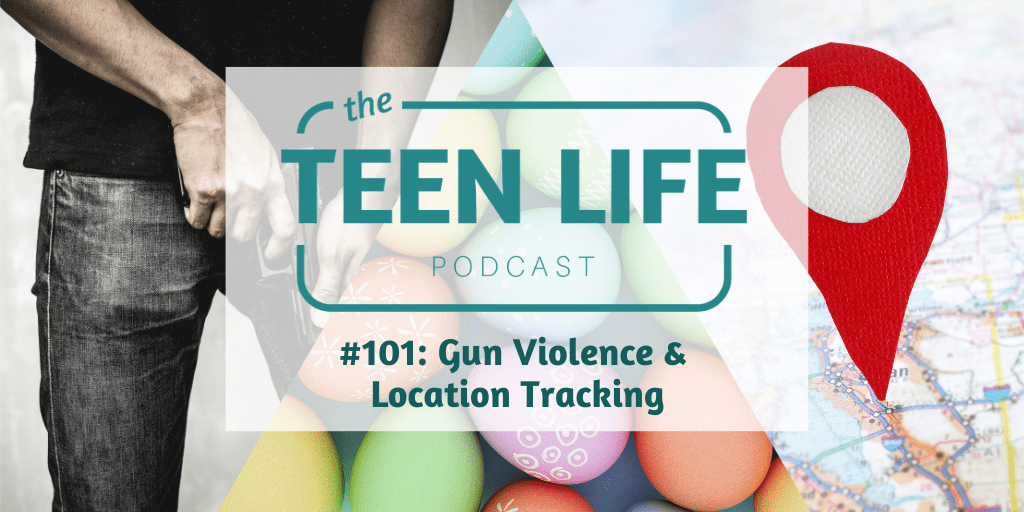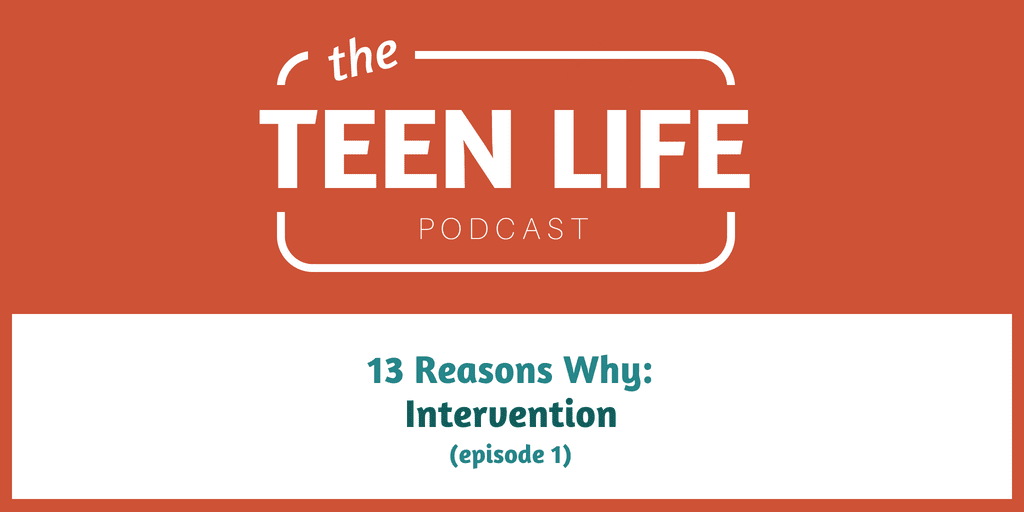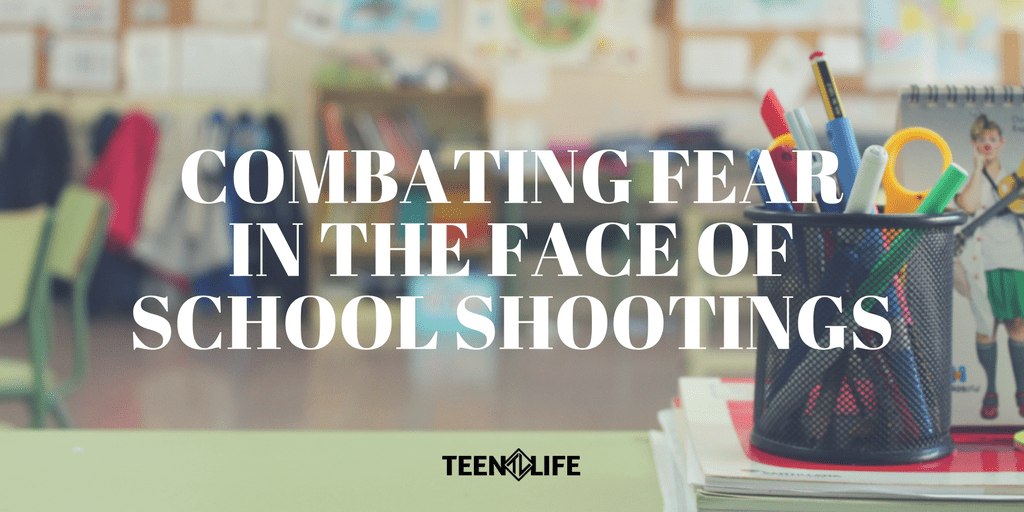Teenagers are pushed to face their fears and overcome them all the time. They fear failure, rejection, stress, the unknown, and so many other things. As adults, our job is to help them give voice to their fear and then figure out how they can find courage in the face of difficult times. But what happens when fear is deadly, random, and unpredictable? How do we respond to the understandable fear after a school shooting?
Fear cannot be ignored.
We see fear of bullies, failing a test, heights, being left, parent’s divorcing, humiliation, missing the shot, letting people down, getting sick. And now teenagers have to add the fear of getting attacked at school? We have to add the fear of our children not coming home at the end of the day?
It isn’t fair. It doesn’t make sense. But it is real and it is something that needs to be addressed.
While we do not have any answers for the tragedies that are taking place all over our country, here are a few ways that we can help combat fear.
Be ready for the crisis.
It is easy to react after a tragedy occurs. Once something horrible happens, we look for answers and start having conversations. But what if we had already started these conversations? What if the ground work was already laid so that when something horrible happened, we were prepared?
It is important to talk to teenagers and kids about what is going on – in their school, city and country. They know something is wrong. They can read adults, and most have access to social media or the internet where they are probably getting more details than you would see on the evening news. We can’t avoid fear and difficult situations that happen across the country. So we need to start having conversations today. Develop a relationship with your student where you can have difficult conversations all the time. That will make these hard topics more manageable.
Here are a few tips to being ready for conversations:
- Be shock proof: Remain calm when talking to your teens. Be genuine, but don’t let your own fear color the conversation.
- Ask good questions: Resist the urge to lecture, but instead ask questions about what they have heard and how they are feeling.
- Keep it appropriate: Conversations are important, but only if they are helpful. Don’t scare or over-share if your kids aren’t ready for it.
- Be part of the solution: Get involved. Use the resources of schools and organizations, but don’t put all the responsibility on others.
Know your resources.
Speaking of being ready for a crisis…this is crucial! When something happens, you don’t have to walk through it by yourself – utilize the resources in your community, school and church. Maybe a resource is as simple as having another trusted adult on call if your teen would rather talk to someone outside of your house. Or be prepared if your child wants to talk to a counselor (whether it be their school counselor or another professional). Ask your church and school what resources are available – is there a series coming up that will address things like school shootings? Are support groups available on their campus? Is there an article or podcast that gives a different perspective?
There are so many resources available, and it will be incredibly helpful if you already know where to look first. Here are a few places we recommend:
- Youth Specialties Blog: While these blogs are aimed at youth workers, they are a great resources to parents as well!
- Teen Life: I may be a little biased, but Teen Life offers lots of great resources from our blog and podcast to Support Groups on school campuses.
- Google: Earlier this week, someone asked us for an online resource after the Parkland shooting and by searching “how to have conversation with child about school shooting,” I found several great options!
- Preventative Resources: Use resources like Michele Borba’s book or blog to talk about healthy things kids need to focus on. Start with this blog post!
- Local Resources: Know what organizations are in your area! The Warm Place and Real Help For Real Life are two in Fort Worth but do some research around you.
Believe your kids.
It is so important to believe your kids, especially in times of fear and trial. I think sometimes we dismiss students as being dramatic or exaggerating. While teens can be dramatic, and they can exaggerate some details, is it worth not believing them if they are being completely truthful?
In the aftermath of the Parkland shooting, several students said that they weren’t surprised by the identity of the shooter. They had always joked that he would shoot the school. How terrible is that? Not only that they perceived the danger, but that they either didn’t share their concerns with adults or those adults didn’t take them seriously.
We have to give our teens the benefit of the doubt. If they express worry about a classmate or friend (whether that worry is about violence or suicide or depression), we need to listen. Validate what they are seeing, teach them how to get help and how to find resources for their peers.
Fear is all around us, and it is not something that is going away, especially with the digital world we live in today. Your teenagers are more aware of what is going on around the world than we ever were. They probably knew about the Florida school shooting before you did. Instead of hiding from fear, let’s learn how to cope, have positive conversations, and find helpful resources.
What are some resources you have found in times of tragedy? How have you helped teens combat fear?
















